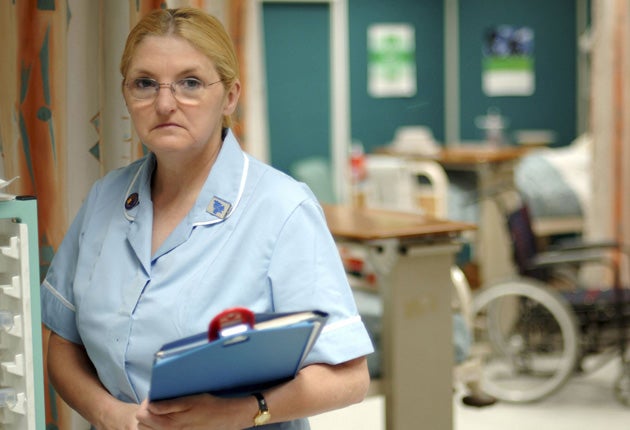High Court reinstates nurse who exposed neglect
Nursing and Midwifery Council decision that led to public outcry overturned

Your support helps us to tell the story
From reproductive rights to climate change to Big Tech, The Independent is on the ground when the story is developing. Whether it's investigating the financials of Elon Musk's pro-Trump PAC or producing our latest documentary, 'The A Word', which shines a light on the American women fighting for reproductive rights, we know how important it is to parse out the facts from the messaging.
At such a critical moment in US history, we need reporters on the ground. Your donation allows us to keep sending journalists to speak to both sides of the story.
The Independent is trusted by Americans across the entire political spectrum. And unlike many other quality news outlets, we choose not to lock Americans out of our reporting and analysis with paywalls. We believe quality journalism should be available to everyone, paid for by those who can afford it.
Your support makes all the difference.A nurse who was struck off the register for blowing the whistle on unacceptably low standards of care for elderly patients has won her fight for re-instatement.
Margaret Haywood secretly filmed patients at the Royal Sussex Hospital in Brighton to show they were being neglected. Her film was used as part of a Panorama documentary which highlighted the lack of care for some of the elderly at the hospital, including for one patient who was left to die alone and another who had to wait hours before being able to go to the toilet.
There was public outcry in April when the nurse was struck off on the grounds she had breached confidentiality, despite exposing neglect.
But the penalty imposed by the Nursing and Midwifery Council (NMC) was overturned yesterday by the High Court in London which ordered Ms Haywood's re-instatement. However, rather than being entirely exonerated she was instead given a one-year caution.
Ms Haywood was nevertheless delighted at the ruling which means she can return to nursing and said: "Losing my registration after 25 years as a nurse was devastating. I am proud to be a nurse and have always put patients' interests first."
She had admitted breaching patient confidentiality but said she had agreed to film at the Royal Sussex Hospital in Brighton to highlight the terrible conditions. She said that the lack of "basic nursing care" that the elderly patients had received at the hospital had made her ashamed of her profession.
After being re-instated, she said: "I have been overwhelmed and humbled by the patient and public interest in my case. I found it hugely comforting over this difficult period."
Her High Court case was championed by the Royal College of Nursing after an outcry by senior members of the profession who were angered that the punishment would deter other nurses and staff from whistleblowing.
Her treatment by the medical authorities, however, remains a source of anger and bitterness. Peter Walsh, the chief executive of Action against Medical Accidents, said: "This is a victory for common sense. Our only regret is that it has taken legal action in the High Court to arrive at it. Margaret Haywood should not have been struck off in the first place.
"Patient safety should always be a health professional's primary concern. Health professionals have a duty to raise concerns, and if circumstances dictate that this needs to be done through working with the media, that needs to be taken into account."
Joyce Robins, the co-director of Patient Concern, feared that potential whistleblowers would already have been discouraged from taking action.
"Sadly, even with this welcome reversal, damage has been done," she said. "Anyone tempted to blow the whistle on unacceptable practices in the NHS will think twice before risking their career.
"The only complaint against Margaret Haywood came from the NHS Trust – the very organisation that allowed elderly people to be kept in subhuman conditions and were seriously embarrassed when their negligence was revealed to the public. Which nurse would you trust – the one who blew the whistle and saved suffering, or the ones who went to work each day, saw the appalling treatment, and did nothing?"
Kathy George, the chief executive and registrar at the NMC, said she recognised that whistleblowing was a "difficult and brave step" for nurses to take and that guidance was being developed to help them decide how to raise their concerns.
The Panorama programme, broadcast in 2005, was the result of a three-month investigation. Ms Haywood wore a hidden camera during 28 shifts on an acute medical ward. The BBC journalist Shabnam Grewal also got a job on the ward with a company contracted to serve food and clean.
Join our commenting forum
Join thought-provoking conversations, follow other Independent readers and see their replies
Comments